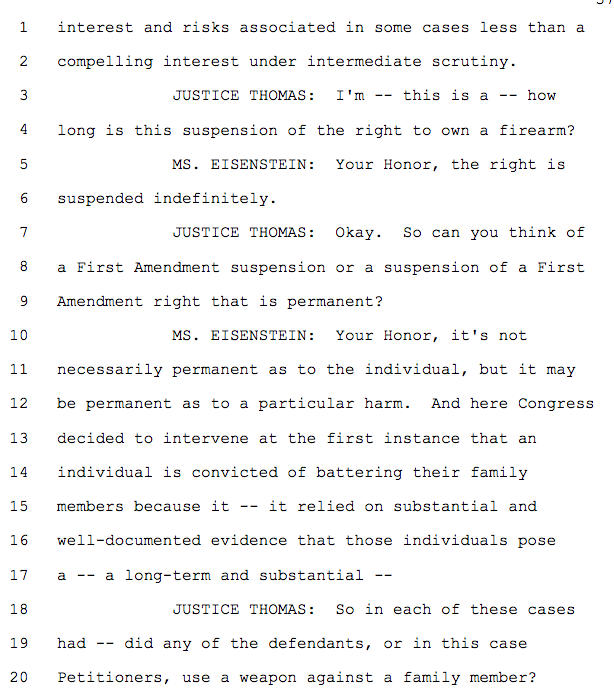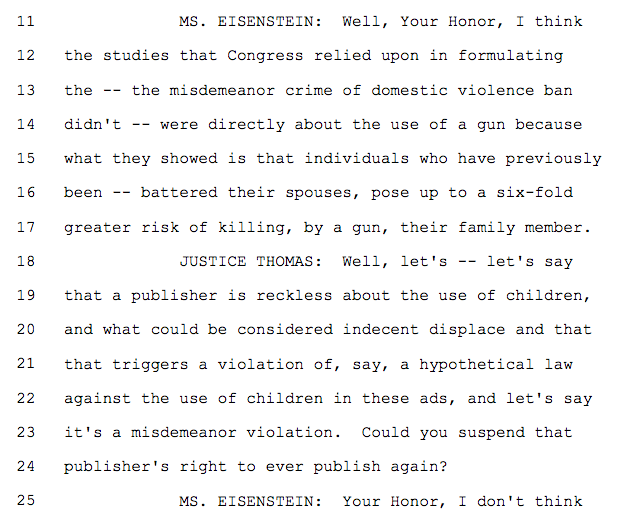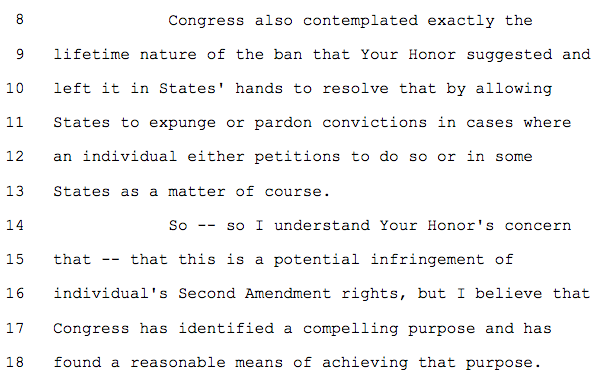![]()
Jonathan Ernst / Reuters
MYRTLE BEACH, South Carolina — An ad running on black radio here begins not with Hillary Clinton's record, but with Barack Obama.
“We all worked hard to elect President Obama in 2008 and 2012,” a black woman’s voice says in the spot produced by Priorities USA, the pro-Clinton super PAC. The ad goes on to tell listeners that Obama trusted Clinton to do perhaps the most important job in his cabinet.
The message has been there for months: Clinton, the candidate and campaign have made clear, will work to defend and extend Obama’s legacy. And it’s working for voters who support Clinton, especially older voters, who see her as the electable heir to Obama and all he accomplished while in office.
But for the voters either supporting Bernie Sanders or are undecided or even the Clinton supporters, there’s often a dreaded reality. Without Obama on the ballot, there’s just not as much interest.
It is a concern among Democrats still concerned about losses in midterm elections in 2010 and 2014. If new voters who enthusiastically supported Obama both election years don’t come back and vote for the eventual Democratic nominee, the party could be in serious trouble, Democratic strategists say.
Without engaging the Obama majority, familiarity with Clinton aside, strategists like Cornell Belcher, president of Brilliant Corners Research and who was part of the Obama polling team in 2008 and 2012, say the electorate will look more like 2010 and 2014, when Republicans destroyed Democrats up and down the ticket. “The danger is you can't win Ohio, Florida, Virginia. North Carolina is not purple,” he said. “That's the danger.”
Belcher told BuzzFeed News that he’s long emphasized — from when Howard Dean chaired the party to now — that Democrats should not mistake Obama voters for voters who would vote Democratic in future elections. Obama, he said, was a culturally relevant and politically agreeable phenomenon, making him, essentially, the presidential candidate of a lifetime.
“I can't overemphasize that: They are Obama voters. Not Democratic voters,” he said. “Yes, they lean Democratic on almost all of the issues, but they were not turning out for Democrats, they turned out for Obama. And unless we build and cultivate that we are not a progressive majority.”
The excitement, Belcher said, lies this year with the Republicans; primary voter participation is down from 2008 on the Democratic side — and up because of Trump and other factors.
Gloria and Clarence Caldwell of Orangeburg are the kind of voters expected to deliver Clinton a double-digit win in Saturday's Democratic primary. They had already cast votes for her a week before the primary and were spreading the word neighbors, friends, and family members.
But even they acknowledge there is muted interest in the election amongst their friends, colleagues, and neighbors, all whom voted for Obama in 2008 and 2012. "But you know, there doesn't always have to be as much excitement and enthusiasm as long as we know that the reality is that Hillary Clinton is our better choice,” Gloria Caldwell said.
“I think she has the experience and the vision for a better America,” she continued. “She's been trusted by President Obama, a leader that we love and respect greatly. And we believe that she will carry on the legacy and continue a lot of the initiatives that he started.”
“Amen,” said her husband.
Barbara F. Pettett, 72, has also voted for Clinton, but said her enthusiasm for her pales in comparison to her feeling when Obama. She was in a drug store in Augusta, Georgia, when she saw the prescient cover of TIME magazine that “this man could be president.”
“I felt something in my spirit and I said, ‘Yes, he will.’”
Pettett said she made 150 phone calls for Obama from an office in Harlem in 2012. She can still recite the script. “I was so proud of myself,” she said, working herself into a giggle. “I didn't give any money, but I had to make sure he stayed in the house.”
“Voting for Obama was about this—” she said, patting her hand to signify her skin color. “It's just voting this time.” She was waiting in line to see Clinton and Sen. Cory Booker at Cumberland United Methodist Church in Florence where she'd been married years ago. “It's voting for a Democrat.”
Clinton’s most fiercely loyal black supporters — a cluster of voters who abandoned her for Obama in 2008 — understand Clinton’s viability as the nominee. These supporters generally express three core beliefs: First, the tough primary campaign between Clinton and Obama was simply the nature of politics. Second, they view him choosing of her as secretary of state as a nod to his diplomacy and character — and to her capability and humility. Mostly, and perhaps most importantly, they believe that she will protect his legacy of accomplishment while in the White House — a trust that comes because the voters feel like they know her.
![]()
Darren Sands / BuzzFeed News
For all of their affinity for Clinton, however, this year’s election carries none of the excitement factor — a general election concern more than anything.
“I want to see the first white woman in office,” said Annie Green, a black voter leaving Clinton’s town hall Thursday night in North Charleston. “I feel like I’m making up for lost time by voting for her now, I feel bad.”
She said her son, Rico Diggs, had suffered from dementia before his death in August of 2010. She said her son didn’t remember much. But he had remembered that the president was black and that his name was Barack Obama.
“That night when he became president? I didn’t go to bed all night long!” she said. “I was just calling people, ‘Do you know who the president is?’ And my son was right there with me.”
The Clinton campaign has put a great deal of resources into gauging the mood of black voters. The campaign believes that black Americans are “somewhat optimistic,” about their finances and the economy, according to Ron Lester, a well-known pollster hired by Clinton last summer. But many feel that progress could be pulled out from under them. “In focus groups they will tell you that essentially, they feel as though they're skating on thin ice,” Lester said. “It's a struggle but they're optimistic.”
Lester said that Clinton does well with these voters because they are familiar with her and feel she shares their concerns. “They're feeling her,” he said.
Lester said voters had expressed it was important Clinton “support and expand” Obama’s 21st Century Task Force on Policing. Lester said there was also “thousands” of black voters who benefitted from the Affordable Care Act. Lester said protecting the law from repeal is important to black voters, “which the Republicans seem very determined to do.”
Lester’s polling that blacks are familiar with Clinton and trust her experience is a large part of why “she’s my girl,” said Kenneth Jefferson, 62, who came to see Clinton in North Charleston from Goose Creek. “I’m with her 100%. That’s why I came all the way down here today.
“She knows what she’s doing. It ain’t like this is something new for her like it is with Sanders,” he said. “As long as she sticks with Obama, I love it. That’s the perfect move. I consider myself a poor man and she’s down for us. And if she’s down with Obama, I’m down with her just like I was down with her husband. She’s been around us blacks for at least 25 years.”
He said he considered the Clinton presidency better days — today, he receives only $720 a month from social security. “That ain’t no money,” he said.
Priscill Spain of Conway, who saw Clinton at a Thursday rally in Myrtle Beach is among the Obama loyalists who have made their peace with Clinton — and for her, it will all come full circle if Obama endorses her. For now, voters like her are satisfied to hear Clinton say that Obama doesn’t get the credit he deserves for pulling the country out of the doldrums. “I was angry with her when she was running against him, but that’s politics. She had to be negative to a certain degree.”
“I want to make sure that if she’s elected that she has a commitment to not destroying his legacy,” Mary Owens, another voter who saw Clinton in Myrtle Beach, but is from Conway, said. She printed and paid for 150 signs for Clinton and gave them away. “She’s made a commitment to support the programs and initiatives he started so I’m excited about that.” Owens said she comes from a military family — and Sanders’ status in the 1960s as a conscientious objector doesn’t fly in her house.
But Sanders’ appeal with younger voters has been a source of trouble across the board, among women and people of color.
Polling has indicated that young black voters favor Clinton. But, on the campuses of HBCUs — like Allen University, the school where Rep. Jim Clyburn recently endorsed Clinton — many young black students support Sanders. They like that he’s going bolder, more progressive than even Obama. In South Carolina on Friday, for instance, the Kappas on a campus Clinton was speaking on, led by two Bernie supporters, refused to participate in the event. On Capitol Hill, there’s a generational divide: Some black congressional staffers support Sanders; others have questions about why everyone should line up behind Clinton, particularly in light of how the politics of the 1990s led to criminal justice and domestic policies now unpopular and seen as damaging to communities of color.
With these young voters, the idea that Clinton will extend Obama’s legacy may not be enough to excite them. And it was young voters, in particular, that powered Obama’s election and re-election.
“What propelled Obama to the nomination and ultimately to the White House was a surge of new voters who had not previously been part of the process before,” Belcher said. The question Democrats face now is how to excite those voters when Obama is no longer on the ballot and is set to exit the stage. In 2012, Belcher said Mitt Romney had a “perfectly orchestrated” strategy, but failed to account for Obama’s new majority of loyalists he says are thus far unengaged. “Democrats have to be very, very concerned about the lack of energy that you're seeing among younger black and brown people. Arguably, the Mitt Romney playbook works.”
“I was more into it in those years because it was a black man running, to be honest,” a young health care worker who helps uninsured patients find quality insurance and care recently told BuzzFeed News. She is not knowledgeable on either candidate running in the primary, she said.
She did know, however, that Clinton had vowed to protect Obamacare.
“But, in my experience it wasn’t effective,” she said. She asked for anonymity because she was not authorized to speak for her company. “The prices were too high for a lot of the patients so we had to find them Medicaid. It didn’t work like we thought it was going to."
The process was lengthy, and all the kinks had not been worked out she said — and when they were, the insurance still wasn’t affordable for many patients. Protecting that part of Obama’s legacy is not high on her list.
Patreshia Anderson and Ariell Blake both planned on voting Saturday — Anderson (definitely not into Clinton) says she’s voting for Sanders and Blake, while undecided, is leaning toward him, too.
Anderson and Blake, who are members of Sigma Gamma Rho, a black Greek sorority both voted for Obama as freshmen. They will cast another vote on Saturday, this time as seniors who like Sanders’ ideas on college affordability, a $15 minimum wage, and are attracted to his record as a fighter for civil rights for black folks.
For all of their concern about the future (“Are you telling me now that a bachelor’s degree is not enough?” Blake said. “I don’t have 10 to 15 years of experience at anything”) and their support for Sanders, they were less enthusiastic about the eventual nominee — and even the general election.
“Honestly, it’s not the same” enthusiasm, Anderson said. “I think it has to do with race. There’s no black candidate in this election and people here don’t really care as much. Carson is a Republican.”
On the campus of nearby South Carolina State, Anderson and Blake recalled the excitement of election night in 2012. “[S.C.] State’s band was out there playing all night. People were drinking and just having a great time. It felt like a party, I mean, we was turnt. I’m telling you, it was a lituation for Obama,” Anderson said, laughing.
Things have changed.
Said Blake, “Yeah, and now we’re just trying to graduate.”




































